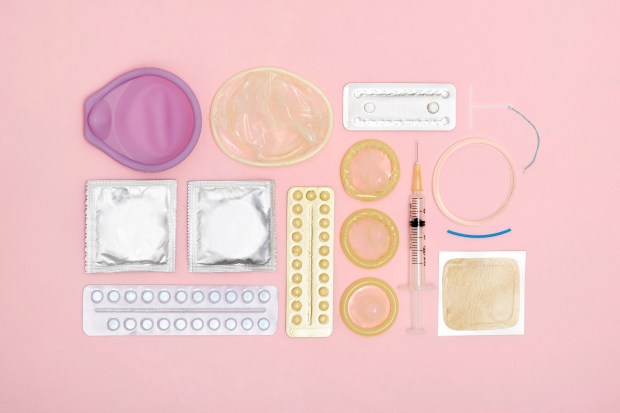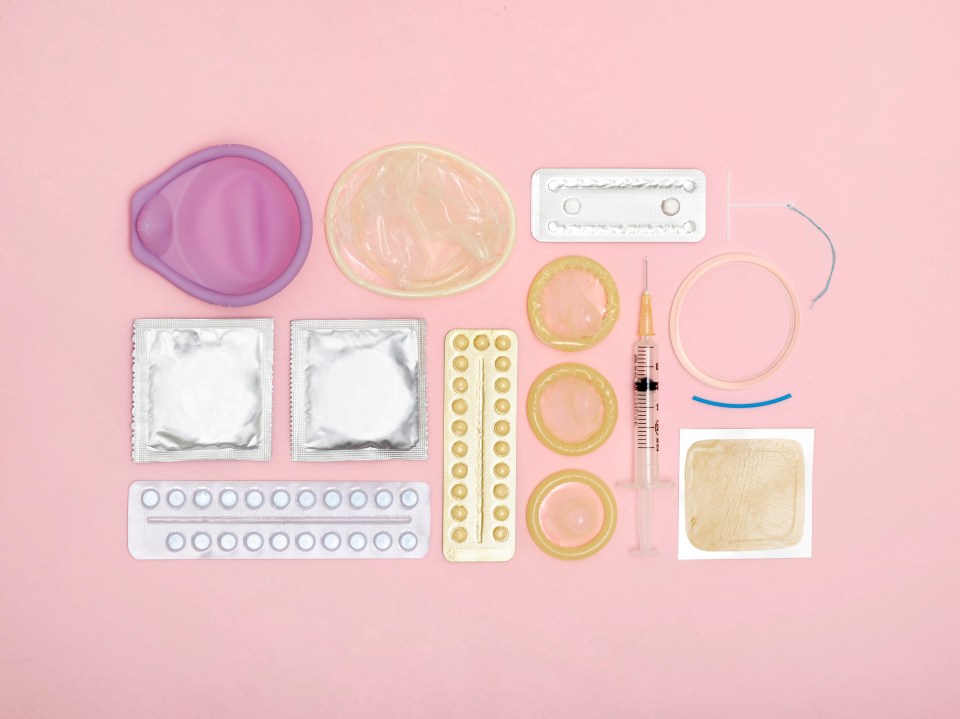CERTAIN contraceptives may carry a risk of heart attacks and strokes in women, according to a new study.
While the overall risk is very low, researchers said medics should be aware of the risks when prescribing certain hormonal contraceptives.
The new study saw academics analyse data on more than two million women aged 15 to 49 in Denmark.
During an average follow-up period of 11 years, researchers noted 4,730 strokes and 2,072 heart attacks among these women.
This information was then compared with their medical records to see whether they had been prescribed hormonal contraception, including combined oral contraceptives, progestogen-only pills, hormonal intrauterine devices, contraceptive implants, injections, patches and vaginal rings.
The team, led by experts from the University of Copenhagen, found that for women who took combined oestrogen-progestin pills – the most commonly used hormonal contraceptive taken by women in the study – there appeared to be a two-fold increased risk of heart attack or stroke.
Read more on contraception
Progestin-only contraceptives, including pills and implants, carried a slightly elevated risk, though lower than the combined pills, they found.
But non-oral combined contraceptives, such as the vaginal ring and patch, appeared to carry higher risks.
The vaginal ring was linked to a 2.4-fold increased risk of stroke and a 3.8-fold heightened risk of heart attack. And the patch appeared to carry a 3.4-fold increased risk in stroke.
But the researchers stressed that the “absolute risks are low”.
Responding to the study, Dr Becky Mawson, clinical lecturer in primary care at the University of Sheffield, and GP with special interest in sexual and reproductive health, said: “Please do not stop using contraception based on this study.
“The risk of stroke and heart attack in pregnancy and postnatal period is significantly higher than the risks reported in this study for contraceptives.
“For those using contraceptives for treatment of health conditions, the slightly increased risk needs to be balanced with the benefit in quality of life for those suffering debilitating gynaecological and hormonal conditions.
“Saying that, if you have other risk factors for strokes and heart disease, then it is worth discussing with your healthcare team to look at the safest options like the hormonal coil.”
The types of contraceptives in the study are largely similar between the UK and Denmark.
But the researchers said there may be some differences in the specific brand names available and the popularity of certain methods between the two countries.
“This nationwide cohort study found that contemporary oestrogen-progestin and progestin-only contraceptives, except for the levonorgestrel-releasing intrauterine device, were associated with an increased risk of arterial thrombotic events,” they wrote in The BMJ.
Heart issues ‘rare’ in young women
In a linked editorial, Therese Johansson, from the Royal Institute of Technology in Sweden, said eight in 10 women around the world have used hormonal contraception at some point in their lives.
She said heart issues examined in the research are “rare” in young women like those involved in the study.
“The most commonly used hormonal contraceptive, the combined oestrogen-progestin pill, was associated with a two-fold increase in the risk of ischaemic stroke and myocardial infarction,” she wrote.
“Which translates to one additional ischaemic stroke for every 4,760 women using the combined pill for one year, and one additional myocardial infarction for every 10,000 women per year of use.”
But she added: “It is important to note that the absolute risk remains low.
“Nonetheless, these side-effects are serious and, given that approximately 248 million women use hormonal contraceptives daily, the results carry important implications.”
She pointed out that the study found that the levonorgestrel-releasing intrauterine system “was the only hormonal contraceptive not linked to an increased risk, making this option safer for cardiovascular health” and called for more to be done to make this alternative an option accessible for women with “cardiovascular risk factors”.
Dr Channa Jayasena, consultant in reproductive endocrinology at Imperial College London, said the “absolute risk of having a stroke or heart attack on the pill is still very low.”
He added: “Only three per 1,000 women were affected by a stroke or heart attack; the risk among those on the pill was about 6-10 per 1,000.
“Women should take away the importance of smoking cessation, healthy eating, and exercise to minimise the (small) increased risk of stroke or heart attack associated with being on the pill.
“Women who have high risks of stroke or heart attack that cannot be reduced should strongly consider a hormonal coil, because of its lack of associated increased stroke or heart attack risk.”
How to choose the best method of contraception

THERE are numerous contraception options available on the NHS and privately, and finding the right one for you can take time.
Things to consider when deciding what contraception to use include how often you need to use it.
Some methods, like the coil, are long acting, while others you need to take every day or use every time you have sex, like the pill and condoms.
Hormonal methods of contraception can also sometimes leave users with side effects like headaches, feeling sick, mood swings, weight gain, sore breasts and acne.
These types can carry a very small risk of health issues like blood clots and breast cancer too, meaning hormonal methods won’t be suitable for everybody.
On top of this, some types will be more effective than others.
The implant and coil are deemed to be 99 per cent effective at preventing pregnancy, as is the pill and patch if used correctly.
But condoms can sometimes break and methods like natural family planning – tracking when you’re most fertile and avoiding sex at those times – tend to be less effective.
Speak to your GP about which of the following might suit you best:
- Combined pill (contains progestogen and oestrogen)
- Mini pill (contains progestogen only)
- Copper coil or intrauterine device (inserted into the womb and doesn’t contain hormones)
- Hormonal coil or intrauterine system (inserted into the womb and releases progestogen)
- Implant (inserted under the skin on your arm and releases progestogen)
- Injection (progestogen)
- Patch (worn on the skin and releases progestogen and oestrogen)
- Vaginal ring (put in the vagina and releases progestogen and oestrogen)
- Condoms (worn on the penis)
- Internal condoms (put in the vagina before sex)
- Female sterilisation (permanently stops eggs meeting sperm)
- Vasectomy or male steralisation (permanently stops sperm being ejaculated)
- Diaphragm or cap (put inside the vagina before sex to stop sperm getting into the womb)
- Natural family planning (includes tracking your menstrual cycle to avoid sex when you are most fertile)
- Morning after pill (to be used in emergency situations three to five days after sex)
Source: NHS

